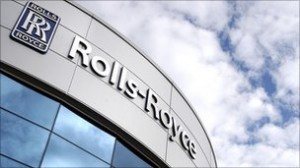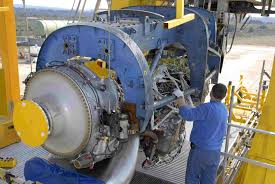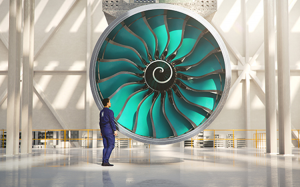Aerospace giant Rolls-Royce has underlined its commitment to make its Bristol plant one of the world’s first manufacturing sites to achieve net zero carbon operations.
The plant, which makes engines for key defence programmes such as the EJ200 that powers the RAF’s Eurofighter Typhoon and the Short-Take Off and Vertical Landing (STOVL) capability for the F-35 combat aircraft, is on course to hit the target this year.
The historic plant at Filton, which employs more than 3,000 people, has long been associated with leading-edge engine development and over the decades has been responsible for creating Concorde’s innovative Olympus 593 engines as well as military aircraft breakthrough such as STOVL technology.
While it has been at the forefront of innovation in the aviation industry for more than 100 years, it is now playing a leading role in helping the organisation achieve its net zero goals which includes installing a self-sufficient microgrid on the site.
Defence programmes developed at the Bristol plant such as the EJ200 engine are now capable of operating with 50% Sustainable Aviation Fuel (SAF).
The plant also benefits from 3.4MW of onsite solar power, providing savings of 1,600 tonnes of CO²e a year, and 13 ground source heat pumps, generating 750m² of solar thermal power and delivering savings of 1,512 tonnes CO²e a year.
For the past two years the plant has also been producing the world’s largest fan blades for the next generation of low-emission aero-engines at a new hub.
Part of the group’s UltraFan project, the blades will set new standards in efficiency and sustainability, reducing fuel by 25% compared to the first generation Trent civil aviation engines while delivering the same percentage reduction in emissions.
Rolls-Royce sees UltraFan as a key element of its sustainability strategy, which involves continual research to improve gas turbine performance as well as pioneering electrification and working with industrial partners to accelerate the incorporation of sustainable aviation fuels.
The group also views the decarbonisation of its core markets, including defence, as a strategic objective. As a result, it is developing innovative technologies such as sustainable aviation fuels (SAF), small modular reactors, microgrids and all-electric and hybrid-electric power and propulsion solutions, which it says will have a fundamental role to play in enabling and accelerating this transition.
While Rolls-Royce is committed to net zero by 2050, the Bristol site is set to be its first facility to achieve net zero carbon status.
Rolls-Royce re-affirmed its pledge for the Bristol plant this week when it posted its full-year results for 2021.
It said all new products would be compatible with net zero operation by 2030 and all existing products by 2050. By next year it wants all its in-production civil aero engines to be proven compatible with 100% sustainable aviation fuels and will aim to reduce lifetime emissions of new products from its Power Systems division by 35% by 2030.
It also plans to increase the proportion of its gross research & development spent on lower carbon and net zero technologies to 75% by 2025 to decarbonise transport, energy and the built environment.
The group is also investing in battery storage technology, demonstrating fuel cells and aims to build a leading position in all-electric and hybrid-electric flight and further exploring the use of SAFs in defence applications, including as part of its involvement in the Tempest next-generation jet fighter programme in the UK planned to enter service from 2035.
Rolls-Royce has customers in more than 150 countries, including more than 400 airlines and leasing customers, 160 armed forces and navies, and more than 5,000 power and nuclear customers.
It operates a number of major plants across the world, including in the US, Canada, Germany, Spain, Norway and the Far East.
Its annual financial results published this week show it made a £124m pre-tax profit last year compared to a loss in 2020 of £3.1bn on revenues down 2% at £11.2bn.
In comments accompanying the results the group said its longstanding commitment to strategic investments in defence products and facilities had resulted in a strong order book and was driving longer-term sustainable growth.
During the year it secured new work for the coming decades in the US with the award of the B-52 engine replacement contract and it remained in a competitive process for the Future Long-Range Assault Aircraft (FLRAA) programme in the US, the successor to the Sikorsky UH-60 Black Hawk utility helicopter.





























